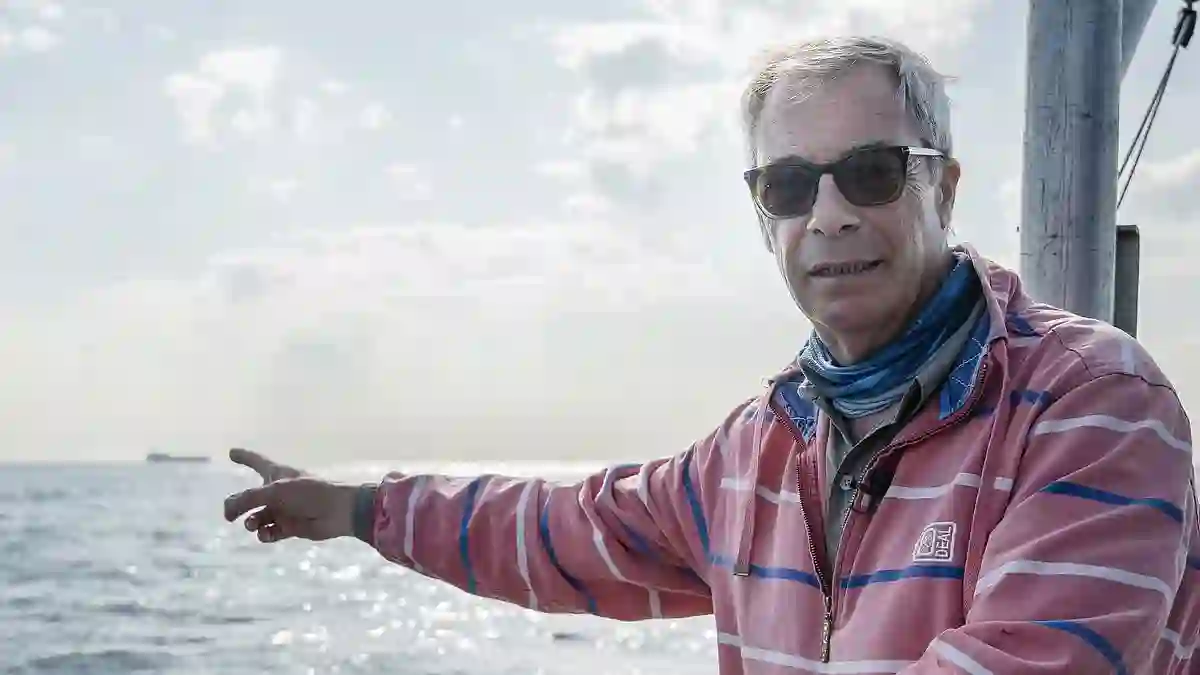Early one summer morning in the middle of the English Channel, Nigel Farage found exactly what he came for—a vivid, up-close look at the ongoing migrant crossings that have become a daily challenge for both Britain and France.
Just a few hundred yards from the Border Force cutter Hurricane, an overcrowded dinghy packed with 78 migrants approached, fresh from a French beach hours earlier.
The “Handover” at Sea Reveals a Disturbing Routine
For over an hour, Farage and the crew observed as a French naval vessel escorted the tiny boat to British waters in what’s known as a ‘handover’—a process where responsibility for the migrants shifts from French to British authorities.
The dinghy was so packed that passengers were sitting on every inch of space, some with feet dangling dangerously in the water.
As the migrants scrambled aboard the Border Force vessel, French officials sent out a rigid inflatable boat to retrieve the 40 life jackets they had handed out, expecting to reuse them on new crossings later that day.
The scene was both chaotic and routine, a daily business between the two countries.
Cooperation or Complicity? Farage’s Harsh Critique
Farage didn’t hold back his views on the situation.
He described the coordination between British and French officials as “outrageous” and accused them of effectively aiding what he called a crime.
He pointed out that the French had received £800 million from the UK since 2014 to manage migration, yet the crossings continue unabated.
According to him, everyone involved seemed content—the French were happy to get their lifejackets back, the British Border Force was content with the process, and the migrants were pleased to be on their way to a new life in the UK at public expense.
A Day of Crossings Despite High-Level Summit
Farage noted the irony that even on a day when UK Prime Minister Keir Starmer and French President Emmanuel Macron were scheduled for a summit on migration, the crossings went on as usual.
The calm, warm weather created what authorities call a ‘red day’—a prime window for migrants to cross safely by boat.
He warned that the smugglers’ boats have become larger, less seaworthy, and more dangerously overcrowded over the years, while French and British authorities have developed a well-oiled, costly system to manage the crossings—helping ensure migrants’ safety but keeping their arrival out of public view.
Rising Security Concerns and Calls for Emergency Powers
Farage raised alarms over the security risks, highlighting reports linking some migrants to serious crimes, including terrorism and grooming gangs.
He argued this is no longer just a border issue but a national security emergency.
He stressed that the government should consider emergency measures, including suspending certain international human rights agreements, to detain and process migrants away from public streets.
Farage also hinted at the possibility of towing boats back to France or involving the Royal Marines if the crisis worsens.
Skepticism About New UK-France Migration Deals
Farage was blunt about the latest “one in, one out” proposal from the UK and France, calling it “farcical.”
He argued the courts would likely block such an agreement and pointed out that migrants would continue to take the risk as long as the chance to stay in the UK remains high.
Public Frustration and the Hidden Truth Behind the Crossings
The public anger about the migrant crossings is well-documented, Farage said, but the truth is even worse than people realize.
Behind the scenes, the French and British authorities appear to enable and manage the illegal crossings with a surprising level of cooperation—conducting handovers far out at sea, away from public scrutiny.
Farage’s Parting Thought: It’s Time to Act
Fishing rod in hand, Farage summed up his feelings on the crisis: the crossings are growing out of control, the government’s response is inadequate, and unless drastic action is taken, the situation will only worsen.
For him, this is no longer just a migration challenge—it’s a national emergency demanding urgent attention.
